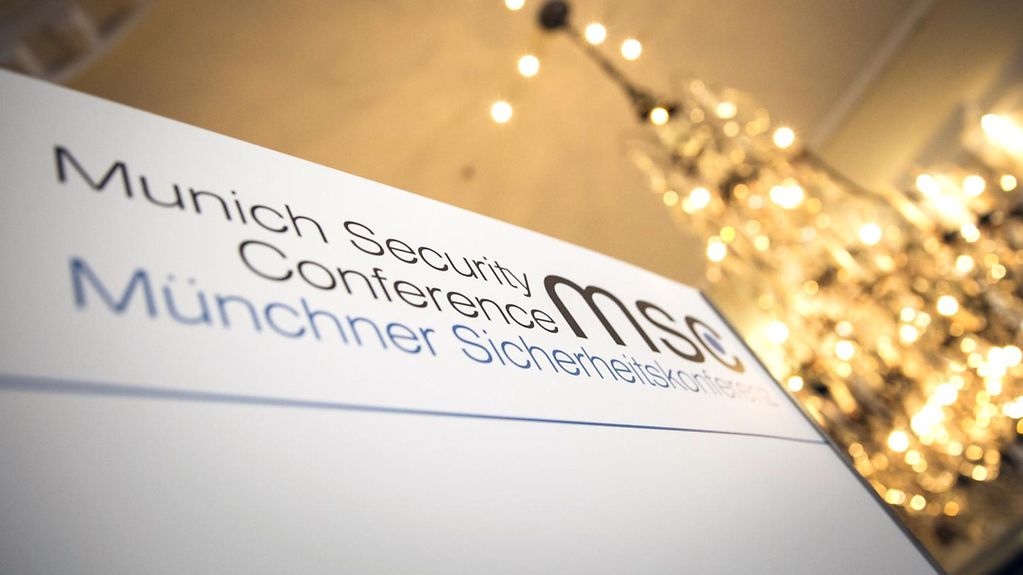FAQs
Decision-makers from the realms of politics, business, the science and research community and civil society were invited to attend the world’s largest security policy event from 14 to 16 February. The main focus of the conference was on debates and discussions of topical crises and future security challenges.
3 min reading time

In the middle of February, Munich once again became the epicenter of security-policy debate.
Photo: Florian Gaertner/photothek.net
What is the Munich Security Conference (MSC)?
Every February, high-ranking international decision-makers meet in Munich. Under the chairmanship of Wolfgang Ischinger, they discuss current crises and future security challenges in an independent setting.
More than 500 invited guests and 1,300 journalists attended this year’s 56thconference from 14 to 16 February. The Munich Security Conference is considered to be an important meeting of international security policy experts. The large number of participants not only reflects the many crises around the world at the moment, but also the need for dialogue and discussion.
What is the intended purpose of the Munich SecurityConference?
The Munich Security Conference was originally planned in 1963 as a German-American forum for discussing security policy issues. The conference provides a forum for reflecting on current and future challenges in the field of international security policy.
The presence of the largest US delegation ever at this year’s conference demonstrates that the German-American debate is still of central importance.
"The Munich Security Conference is not a playground," said Ambassador Wolfgang Ischinger. It is intended to provide an opportunity for us to identify what has been done in the field of international security and what needs to be done.
Who attended the Munich Security Conference?
The conference organisers welcomed about 40 heads of state and government, some 100 ministers of foreign affairs and defence, as well as representatives of other ministries. Numerous international organisations sent representatives, including the European Union, the United Nations, NATO, the OECD and the International Criminal Court in The Hague.
Federal President Frank-Walter Steinmeier gave the opening speech. French President Emmanuel Macron was a guest at the Munich Security Conference for the first time this year.
Numerous heads of state and government attended the conference, including Canadian Prime Minister Justin Trudeau, Afghan President Mohammad Ashraf Ghani and Austrian Sebastian Kurz.
Facebook CEO Mark Zuckerberg’s attendance was also a first – major companies also influence security policy to a non-insignificant degree.
Who attended on behalf of the German government?
Federal Minister for Foreign Affairs Heiko Maas, Federal Defence Minister Annegret Kramp-Karrenbauer, Federal Minister of the Interior Horst Seehofer and Federal Health Minister Jens Spahn.
What are the expectations of the conference?
Every conference has its own theme, which signals the direction or poses a provocative question that is to be answered.
The theme of this year’s Munich Security Conference is "westlessness". This neologism encapsulates the widely held dual perception that both the West and the world as a whole is developing in a less "western" direction. What is meant is the loss of transatlantic values and the security community.
What is intended is a look at the fundamentals: in what direction are democracy, liberalism, the market economy and liberty developing? What global impacts can be expected? What role will the EU play?
The dramatic changes in the international situation in recent years and the risks posed by the current destructive dynamics of global politics calls for talks about the consequences of these developments for international security policy. The Chairman of the Munich Security Conference, Ambassador Wolfgang Ischinger, expects concrete results here.
In what form is the conference be held?
The formats for dialogue change along with the conference itself. Things are moving away from classic speeches to interactive, facilitated discussions with the opportunity for members of the audience to ask questions. Alongside large-scale discussions with a wide audience, there is provision for bilateral talks and this is an option that is frequently used. That means that high-ranking delegates can meet confidentially away from the public gaze.
What is important in these meetings is that participants do not talk about a region but engage with representatives of the region in an effort to master crises.